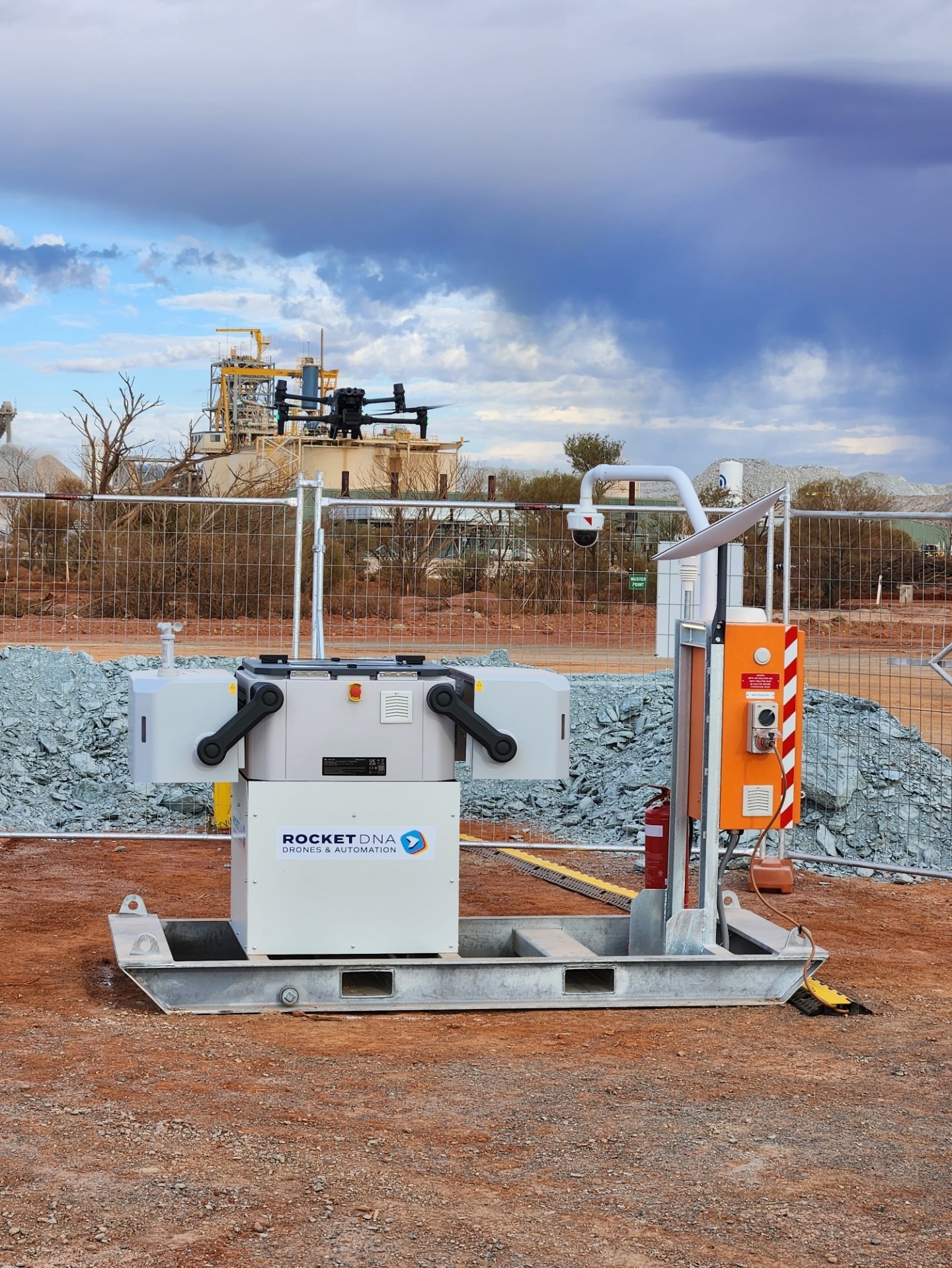Autonomous “drones-in-a-box” that could respond instantly to power outages, identify faults quicker and reduce the time customers are off supply, have recently been approved by Australia’s Civil Aviation Safety Authority (CASA).
 RocketDNA drone-in-a box installation on a client mine site in Western Australia. Image Credit: RocketDNA
RocketDNA drone-in-a box installation on a client mine site in Western Australia. Image Credit: RocketDNA
The X-Bot solution, developed by RocketDNA, a global drones-as-a-service provider, have the capability of flying beyond visual line of sight (BVLOS) and are a cost-effective and easy way for any business with remote assets – such as energy, mining, agriculture, and oil and gas industries – to monitor and respond to emergencies involving their infrastructure.
“One of the main issues with electricity outages for example is the fault can be difficult to locate, especially in remote areas where the fault may be a fallen tree over a power line kilometres away from a road,” RocketDNA CEO, Christopher Clark, said.
“RocketDNA’s drones-in-a-box respond automatically when a fault occurs and can be used to identify the exact location and send the information back to the remote operating centre (ROC) in a much more timely and efficient way. That could help utility companies dispatch repair crews faster and get customers back on supply sooner.”
These technologies could also help businesses across the asset management, mining, energy and resources, emergency services, defence, agricultural and oil and gas industries mitigate risks by keeping employees out of dangerous and remote settings, while concurrently catering to a wide spectrum of applications.
“Rather than sending a human to complete certain tasks, or to respond to an emergency alarm which can be a potentially life-threatening situation, our autonomous drone systems can be pre-programmed or triggered to identify the issue, thus creating safer and more sustainable work environments,” Mr Clark said.
“This could be identifying faults on pipelines and conveyors belts, corrosion, overheating and defect detection of critical energy infrastructure, to full emergency response. Our autonomous flight footage and remote detection plus AI overlay is recorded and livestreamed in real-time helping organisations simply and urgently determine the issue and the appropriate level of response.”
The CASA approval covers two autonomous drone systems – the DJI Dock System and the Hextronics Global Drone Station – including Beyond Visual Line of Sight (BVLOS) flights which marks a monumental advancement for drone technology in Australia.
RocketDNA is the first Australian company to secure CASA approval for the cutting-edge DJI Dock System. The approval follows almost a year of work with CASA, including the development of robust safety protocols, and a suite of policies and procedures, as well as a practical demonstration.
As part of the work, RocketDNA has also refined flight planning protocols for applications in mining, critical asset management and thermal inspection.
“This approval ushers in a new era of data collection applications that can be conducted remotely and marks the initiation of autonomous flights seamlessly integrated into existing operations,” Mr Clark said.
“We have already deployed our first DJI Dock to a customer site (gold mine) in Western Australia, where the team will begin implementing autonomous flights into existing operations.”
The system utilises Elon Musk’s Starlink broadband satellite system to transmit the data.
The full X-Bot product is assembled in Australia; the system is approximately the size of two pallets, weighs just 100kg and can easily be moved from location to location depending on requirements.
The DJI drones have a 7 km range and can be deployed as part of a network to cover large areas.